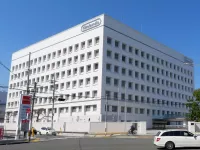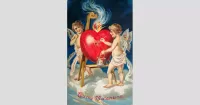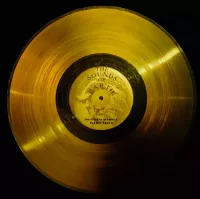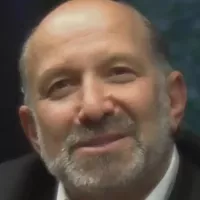Portal 2, the sequel to the acclaimed 2007 game, is a puzzle-platform game developed by Valve. Released in 2011, it is available on various platforms including Windows, Mac OS X, Linux, PlayStation 3, Xbox 360, and Nintendo Switch. Players navigate through challenging levels using the portal gun, a device that creates linked portals, to solve intricate puzzles.
1981: Cave Johnson's Death and GLaDOS's Creation
In 1981, Cave Johnson, the founder of Aperture Science, passed away after being exposed to Moon dust. Before his death, Johnson requested that his assistant Caroline's consciousness be transferred into a computer, ultimately leading to the creation of GLaDOS.
2007: Release of the Original "Portal"
The original "Portal" game, a predecessor to Portal 2, was released in 2007.
January 2008: Confirmation of Portal 2 Development
In January 2008, Valve confirmed that a sequel to Portal, Portal 2, was in development.
June 2008: Initial Prequel Concept and Leak
Initially, Portal 2 was envisioned as a prequel set in the 1950s. However, this concept, which involved Cave Johnson as a central character, was leaked in June 2008.
October 2008: Shifting Away from "F-Stop" Mechanic
Around October 2008, based on playtester feedback, Valve decided to bring back portals to Portal 2, moving away from the "F-Stop" mechanic they had been developing.
March 5, 2010: Portal 2 Officially Announced
Following an ARG, Portal 2 was officially announced on March 5, 2010, through Game Informer.
March 2010: Portal 2 Initial Release Announcement
In March 2010, Portal 2's initial release was announced, targeting a late 2010 launch. This announcement marked the beginning of anticipation for the game's release.
March 2010: Portal 2 Announcement and ARG
In March 2010, Valve officially announced Portal 2 and promoted it using various strategies, including alternate reality games like the Potato Sack, which involved collaboration with several independent game developers.
August 2010: First Portal 2 Release Delay
In August 2010, Portal 2's release was postponed to February 2011. Valve aimed to refine dialogue, level design, and gameplay mechanics based on feedback.
November 2010: Second Portal 2 Release Delay
In November 2010, Portal 2's release was further delayed to April 2011 to allow for content expansion and debugging.
2010: Portal 2 Announcement and Speculation
In 2010, a series of events led to the announcement and speculation surrounding Portal 2. This included speculation about the game's release following a patch to the original Portal, an announcement in Game Informer magazine, and a cryptic message at the Game Developers Conference.
2010: Portal 2 Receives Critical Acclaim at E3 2010
Portal 2 garnered significant praise from gaming journalists during its closed-door previews at E3 2010, earning recognition and awards for its innovation, puzzle design, and overall quality.
February 14, 2011: Portal 2 Co-op Promotion
On February 14, 2011, Valve promoted Portal 2's cooperative aspect as a St. Valentine's Day gift, using a video featuring J.K. Simmons as Cave Johnson. This marketing campaign significantly boosted pre-orders and generated buzz around the game's release.
February 2011: Portal 2 Steam Release
On February 9, 2011, Portal 2 was released on Steam, making it accessible to a large audience of PC gamers. This release marked a significant step in the game's distribution.
February 18, 2011: Portal 2 Development Completion
On February 18, 2011, Valve announced the completion of Portal 2's development, marking a critical milestone in its creation. The team focused on final approvals and disc manufacturing.
March 2011: Pre-release Buzz and Gabe Newell's Comments
In March 2011, Valve's president, Gabe Newell, generated significant excitement by calling Portal 2 "the best game we've ever done." Following the game's release, there were discussions about the future of single-player experiences at Valve.
April 1, 2011: Potato Sack ARG Release
Valve launched the "Potato Sack" alternate reality game on April 1, 2011, engaging players in puzzles and hinting at an early Portal 2 release.
April 15, 2011: GLaDOS@Home and Early Portal 2 Unlock
On April 15, 2011, the "GLaDOS@Home" distributed computing spoof was discovered within the Potato Sack ARG, ultimately leading to Portal 2's early unlock on April 18, 2011.
April 2011: Portal 2 Sales Performance
In April 2011, Portal 2 achieved significant sales figures, becoming the best-selling game in the US during its first week of release and maintaining strong sales in the UK.
April 18, 2011: Portal 2 Retail Release
On April 18, 2011, Portal 2 was released through retail channels in North America, marking a significant moment in the game's launch.
April 19, 2011: Portal 2 Planned Release Date
April 19, 2011, was the planned release date for Portal 2. However, the game was ultimately released earlier than planned due to the Potato Sack ARG.
April 20, 2011: Player Backlash Against Portal 2's Perceived Shortcomings
On April 20, 2011, a segment of players voiced their dissatisfaction with Portal 2, criticizing its length, paid DLC practices, and the perceived quality of the Windows and OS X versions, leading to a debate about the game's value and potential shortcomings.
May 10, 2011: Portal 2 Modding Tools Beta Release
On May 10, 2011, Valve released beta versions of the Portal 2 modding tools, enabling players to create and share their own levels. This marked the beginning of user-generated content for the game.
May 2011: Portal 2 Mapping Competition
In May 2011, Valve supported a community mapping competition hosted by "Thinking with Portals," fostering user-generated content and showcasing player creativity.
July 2011: Portal 2 Sales Reach Millions
By July 2011, Electronic Arts reported that Portal 2 had sold over two million copies worldwide through retail channels.
August 2011: Portal 2 PC Sales Exceed Console Sales
In August 2011, Newell revealed that Portal 2 had performed better on PC compared to consoles in terms of sales.
September 2011: "Songs to Test By" Release (Part 3)
The third part of Portal 2's soundtrack, "Songs to Test By," was released as a free download in September 2011.
October 4, 2011: Peer Review DLC Release
On October 4, 2011, Valve released the "Peer Review" DLC for Portal 2, expanding the game with a new cooperative campaign, a challenge mode, and leaderboards. This free content provided players with new challenges and story elements.
November 2011: Simplified Level Editor Announcement
In November 2011, Valve announced the development of a simplified level editing tool for Portal 2, aiming to make level creation accessible to a wider range of players.
2011: Portal 2 Wins "Most Anticipated Game" Award
Building on its positive reception, Portal 2 was awarded "Most Anticipated Game for 2011" at the 2010 Spike Video Game Awards, reflecting the high level of excitement and expectation surrounding its release.
2011: Portal 2 Bonus Content and Customization
In 2011, Portal 2 was released with bonus content, including videos, comics, and an interactive trailer. The game also introduced "Robot Enrichment," allowing players to personalize their cooperative characters with cosmetic items earned or purchased.
2011: Portal 2 Release and Accolades
Portal 2 was released in 2011 to critical acclaim, receiving numerous awards and nominations, including "Ultimate Game of the Year" at the 2011 Golden Joystick Awards and ranking second on Time's "Top 10 Video Games of 2011."
2011: Portal 2 Release
Portal 2, a puzzle-platform game developed by Valve, was released in 2011 for various platforms, including Windows, Mac OS X, Linux, PlayStation 3, and Xbox 360.
March 2012: Simplified Level Editor Beta Testing
In March 2012, Valve's simplified level editor for Portal 2 entered beta testing, bringing the promise of more accessible level creation closer to reality.
May 8, 2012: Perpetual Testing Initiative Release
On May 8, 2012, the "Perpetual Testing Initiative" update for Portal 2 was released, introducing a level editor and Steam Workshop integration for sharing user-generated content. This significantly expanded the game's lifespan and creative possibilities.
May 2012: Portal 2 Surpasses 4 Million Units Sold
With the release of the Perpetual Testing Initiative in May 2012, Newell announced that Portal 2 had shipped over four million units, with PC sales outpacing console sales.
June 2012: Puzzle Maker Level Editor Released
Driven by the educational potential of Portal 2, Valve released the Puzzle Maker in June 2012, allowing players to create and share their own levels, further expanding the game's possibilities.
June 2012: "Teach with Portals" and "Steam for Schools" Initiatives Launched
Valve launched "Teach with Portals" and "Steam for Schools" in June 2012, offering an educational version of Portal 2 and its Puzzle Maker for free to educators, aiming to integrate the game into classroom learning.
June 2012: PlayStation Move Support Announced for Portal 2
Valve revealed plans in June 2012 to add PlayStation Move motion control support to Portal 2, aiming to enhance the game's immersive experience for PlayStation 3 players.
August 2012: Cooperative Map Creation Enabled
In August 2012, a patch for the Perpetual Testing Initiative enabled the creation of cooperative maps in Portal 2, further expanding the possibilities for user-generated content.
October 2012: "Songs to Test By" Collector's Edition Release
A retail Collector's Edition of the "Songs to Test By" soundtrack, including music from both Portal and Portal 2, was released in October 2012.
November 2012: Over 2,500 Educators Using "Teach with Portals"
By November 2012, over 2,500 educators had incorporated Valve's "Teach with Portals" program into their classrooms, demonstrating the game's growing influence in the field of education.
November 2012: Portal 2 In Motion Released
Portal 2 received a significant update in November 2012 with the release of "Portal 2 In Motion," introducing PlayStation Move support and additional content previously exclusive to the "Hydra" DLC.
2012: Portal 2 Continued Recognition and Awards
In 2012, Portal 2 continued to receive recognition and awards, winning several Game Developers Choice Awards and Interactive Achievement Awards. The "Perpetual Testing Initiative" add-on also won the 2012 Golden Joystick for "Best Use of DLC."
January 2013: Valve Supports Fan Reuse of Portal 2 Content
In January 2013, Valve began to allow and assist fans in reusing content from Portal 2, leading to collaborations with games like Bastion and Defense Grid: The Awakening.
June 2013: Free Co-op Add-on Released for Portal 2 In Motion
In June 2013, a free co-op add-on was released for "Portal 2 In Motion," further expanding the game's multiplayer offerings for PlayStation Move players.
February 2014: Portal 2 Released for SteamOS and Linux
February 2014 marked the arrival of Portal 2 on Valve's Linux-based operating system, SteamOS, as well as its support for Debian-based Linux distributions via Steam, expanding its availability across different platforms.
2014: Release of Aperture Tag: The Paint Gun Testing Initiative
"Aperture Tag: The Paint Gun Testing Initiative", a single-player mod for Portal 2 developed by "The Aperture Tag Team," was released in 2014.
2014: Release of Thinking with Time Machine
"Thinking with Time Machine", a single-player mod for Portal 2 created by Ruslan Rybka, was released in 2014, introducing time manipulation mechanics to the game.
2014: Study Shows Portal 2 Can Improve Problem-Solving and Spatial Skills
In 2014, a study provided evidence that playing Portal 2 can lead to improvements in problem-solving abilities, spatial reasoning skills, and task persistence, highlighting its positive cognitive effects.
June 25, 2015: Release of Portal Stories: Mel
"Portal Stories: Mel", a single-player mod for Portal 2 developed by Prism Studios, was released on June 25, 2015, for Windows, OS X, and Linux.
June 2016: Portal 2 Added to Xbox One Backwards Compatibility
Portal 2 became playable on the Xbox One in June 2016 thanks to the console's backwards compatibility feature, expanding its reach to a new generation of players.
2016: Study Demonstrates Portal 2 Puzzle Maker as a Measure of Fluid Intelligence
A study in 2016 established a link between performance in the Portal 2 Puzzle Maker and fluid intelligence, suggesting its potential as a cognitive assessment tool.
2016: Portal 2 Wins "Villain Most In Need Of A Hug" at Steam Awards
In 2016, Portal 2 won the "Villain Most In Need Of A Hug" award at the Steam Awards, nominated by the Steam community.
2017: Study Suggests Portal 2 Can Enhance Communication and Adaptability
A 2017 study further explored the benefits of playing games like Portal 2, finding that it can also foster communication skills, adaptability, and resourcefulness, indicating its broader impact on players' abilities.
2020: "F-Stop" Mechanic Resurfaces
In 2020, the "F-Stop" mechanic, originally planned for Portal 2, resurfaced when LunchHouse Software revealed they were using Valve's code for the mechanic in their game "Exposure."
April 19, 2021: Release of Portal Reloaded
"Portal Reloaded", a single-player mod for Portal 2 created by Jannis Brinkmann, was released on April 19, 2021, introducing time travel mechanics to the game.
June 28, 2022: Portal 2 Released on Nintendo Switch
On June 28, 2022, Portal 2 was released as part of the Portal: Companion Collection for the Nintendo Switch, marking its arrival on a Nintendo platform.
January 6, 2024: Release of Portal Revolution
"Portal Revolution," a single-player mod for Portal 2 developed by Second Face Software, was released on January 6, 2024.
Mentioned in this timeline
PlayStation is a video game brand by Sony Interactive Entertainment...
Xbox is a video gaming brand owned by Microsoft Gaming...

Nintendo is a Japanese multinational video game company based in...
The Nintendo Switch is a video game console developed by...

Valentine's Day observed annually on February th began as a...

Music is a cultural universal involving the arrangement of sound...
Trending

19 seconds ago Blackpink Announces New Album 'DEADLINE' and Teases New Era.

34 seconds ago Christian Bale transforms for 'The Bride,' calls character 'old-fashioned,' praises Gyllenhaal's script.
49 seconds ago Jaden McDaniels' rise with Timberwolves foreseen by Crawford; joins Leonard's exclusive group.

60 minutes ago Kris Dunn Shines: Steals the Show with Impressive Defensive Performance for Clippers

60 minutes ago Queta's Hilarious Clip Evokes Mazzulla Memories: A Lighthearted NBA Moment

1 hour ago Howard Lutnick faces potential subpoena in Epstein investigation, House Republicans consider deposition.
Popular

Jesse Jackson is an American civil rights activist politician and...

Susan Rice is an American diplomat and public official prominent...

Barack Obama the th U S President - was the...

XXXTentacion born Jahseh Dwayne Ricardo Onfroy was a controversial yet...

Michael Joseph Jackson the King of Pop was a highly...

Kashyap Pramod Patel is an American lawyer who became the...